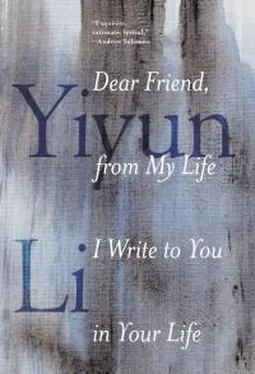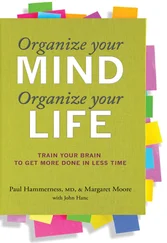Sue remains incomprehensible. “I wonder what he was doing exactly,” Larkin puzzled over Hardy’s design for her. He could have made her a credible character who fascinates and frustrates with her indecision and ambivalence. He treats other characters—even the least sympathetic—with the more thoughtful touch of a novelist.
For instance, Arabella, Jude’s first wife. If Hardy intends for readers to feel repelled by her vulgarity, dishonesty, and coldness, he also grants her unmistakable vitality. There is no ambivalence but her strong desire to make something out of a life that doesn’t offer much. We see Arabella as a young woman, practicing sucking in her cheeks to make dimples. Later in the novel, during an encounter with Sue, Arabella, lying with her back to the door and thinking that the person entering the room is Jude, takes her time to remake her seducing dimples, only to recognize the futility when Sue speaks.
The preface to the first edition ends with this preemptive statement: “ Jude the Obscure is simply an endeavour to give shape and coherence to a series of seemings, or personal impressions, the questions of their consistency or their discordance, of their permanence or their transitoriness, being regarded as not of the first moment.” The seemings really only come with Sue. What makes Hardy deprive her of the shape and coherence that he grants other characters?
At the end of the novel, by Jude’s graveside, Arabella speaks about Sue with vengeful truth: “She’s never found peace since she left his arms, and never will till she is as he is now!” A writer’s cruelty is to exile a real person to fiction. She is forced to give up her unknowability. When she defies that fate she is defenseless against the readers, who deem her an unsuccessful character.
But when I question Hardy’s unfairness, am I not making the common mistake of conflating a character with the writer or someone in his life? One can examine a writer’s work and biography with a detective’s eye for convincing and alluring details. Ernest Hemingway’s defense of his infidelity in a letter to his father: “You are fortunate enough to have only been in love with one woman in your life”; Virginia Woolf’s jealousy of Mansfield during the latter’s life and after her death in her diary: “Do people always get what they deserve, & did K.M. do something to deserve this cheap posthumous life? & am I jealous even now?” It is no surprise we continue to see writers become characters: Hemingway, Woolf, and even Larkin, with his love life dramatized for the screen. Stripped of realness, their fame and idiosyncrasy, their expeditions internal and external all heighten their characterness and make engaging stories. A reader’s cruelty is to return writers to characters. And reading their journals and letters is the reliable first step.
In a letter Larkin contemplated Tryphena Sparks, Hardy’s cousin, proposed by some as the real model for Sue. (There was the conjecture that Tryphena was an early lover of Hardy’s; perhaps there was a child born, too.) “But it would be disappointing to me if it were true—first, because I’ve always thought TH a non bastard, & secondly I should hate him to have some reason for being gloomy—I thought he & he alone saw the inherent misery of life.”
Why does Sue Bridehead matter so much? I wished I could have this conversation with Larkin. I wished I could ask Hardy this question, too. I reread other Hardy novels, and the letters of Hardy’s two wives. I spent my days reading novels whose characters crossed paths only in my mind; I was reading writers’ diaries and biographies connected by footnotes. I did not see people outside the household often; I did not talk with anyone but one friend by phone. Isolation, I was reminded again and again, is a danger. But what if one’s real context is in books? Some days, going from one book to another, preoccupied with thoughts that were of no importance, I would feel a rare moment of serenity: all that could not be solved in my life was merely a trifle as long as I kept it at a distance. Between that suspended life and myself were these dead people and imagined characters. One could spend one’s days among them as a child arranges a circle of stuffed animals when the darkness of night closes in.
—
I ALMOST LOST Larkin’s letters once. My bag was stolen, and for half a day I was distraught. After paying a ransom, I reunited with Larkin’s letters, a thick volume by Kierkegaard, and my journal. A computer, a wallet, and a handful of pens became other people’s possessions.
A violation of privacy, someone said about my stolen journal, sympathizing. Yet that was not my concern. The thief, to whom my journal was a material opportunity, could not invade my privacy—the arguments recorded in it would only be repetitions of a cuckoo clock to an outsider. But this interruption exposed the illusion in which my life was lived. To lose the journal was to lose continuity from one day to the next. To lose the books— my copies—was to lose the conversations. And conversations are my evidence of time. I seal up journals and shelve books, but they still are my permanency. Unlike human lives and feelings, they are not written in vanishing ink.
—
MANSFIELD IS ONE of the most frequently mentioned authors in Larkin’s letters. In analyzing her life and love affairs, Larkin is talking about himself. Reading them at the same time, I was constantly offering my own interpretation, defending Mansfield or disagreeing with Larkin’s defense of her. More acutely, I was aware that my obsession with them reflected what I resent in myself: seclusion, self-deception, and above all the need—the neediness—to find shelter from one’s uncertain self in other lives. For Mansfield, it was Chekhov; for Larkin, it was Mansfield and Hardy. It is characteristic of both that Mansfield chose someone she aspired to be, and Larkin, those who would condone his weaknesses.
When Larkin sent Jones an advance copy of The Whitsun Weddings, without warning her that it included a love poem to another woman, Jones was incredulous. Larkin replied in his typical dodging, thus telling, manner:
My excuse—or if it isn’t an excuse, my answer—is, as you might expect, a complete forgetfulness: I didn’t hesitate a moment about including it, because I didn’t think it wd bother you, and it seemed good enough….I’m sorry about
Broadcast,
and I’m sure my distress was real. I suppose I don’t really equate poems with real-life as most people do—I mean they are true in a way, but very much dolled up & censored.
I do not equate writing with real life either—if cornered I would agree with Larkin, but I am unable to articulate what real life is. “If no one ever read me, would I write? Perhaps not; but I would not be able to stop writing in my head,” V. S. Pritchett said in a letter to Elizabeth Bowen. Of course writing is essential for a writer, and being read, too—halfheartedly I repeat his conviction to others and myself. But the truth is I did not connect those necessities to a writer’s life until I read Pritchett’s letter. Writing is an option, so is not writing; being read is a possibility, so is not being read. Reading, however, I equate with real life: life can be opened and closed like a book; living is a choice, so is not living.
Saying these words aloud puts me in fear that I am again getting things wrong—not that others will disagree or misread me, but that the nearer I get to what I want to say, the further I deviate from it. Any word is the wrong word when it is too close to the unspeakable.
I am aware that, every time I have a conversation with a book, I benefit from someone’s decision against silence. Still, I am greedy for what I am deprived: I have a friend who erases many sentences before putting down one; another friend keeps her thoughts to herself. Yet I believe that there is a truth that is truer in the unexpressed; having spoken, I am apprehensive that I no longer have a claim to that truth.
Читать дальше












